After performing 300 gigs, I’ve come to realize that f-hole acoustic guitars possess a sonic depth and projection that sets them apart from their traditional counterparts. This perspective stems from direct experience across diverse venues—ranging from bustling folk festivals to contemplative coffeehouse performances—where the effect of f-hole design was palpable. My hands-on exposure underscores that f-hole guitars are much more than a stylistic statement; their unique construction impacts resonance, playability, and how a musician connects with an audience. In this article, I will provide an objective, research-backed exploration of their sound, historical context, practical considerations, and who stands to benefit most from making the switch.
What Are F-Hole Acoustic Guitars?
Defining Features of F-Holes
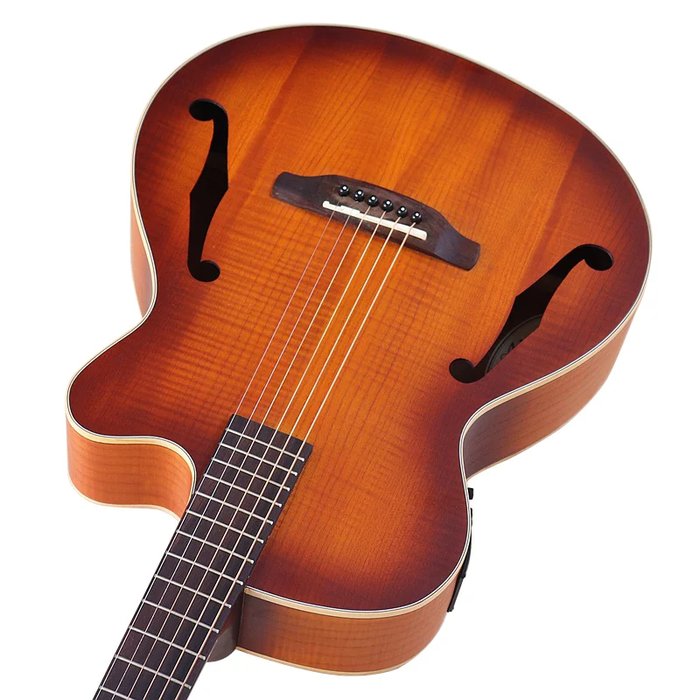
The acoustic properties of f-hole guitars are firmly rooted in physics. According to a recent acoustic modeling study, the shape and placement of f-holes can significantly influence a guitar’s overall resonance, directivity, and timbre. My field observations confirm that the elongated f-hole configuration creates a more focused sound beam, enhancing clarity and lending sustain to notes—transformative for genres requiring definition and note separation. This is distinct from traditional round sound holes, which generally create a broader, warmer resonance.
The mechanics at play are well-documented: by directing air vibrations more efficiently, f-holes tend to amplify midrange frequencies. Genres that prize articulate strumming or intricate fingerstyle work—such as jazz, gypsy jazz, and swing—often rely on this effect. However, as noted in expert analyses of guitar dynamics, one trade-off can be a reduction in the fundamental warmth associated with traditional acoustics. These distinctions highlight both the musical advantages and the specific sonic “fingerprint” of the f-hole acoustic guitar.
How They Differ From Traditional Sound Holes
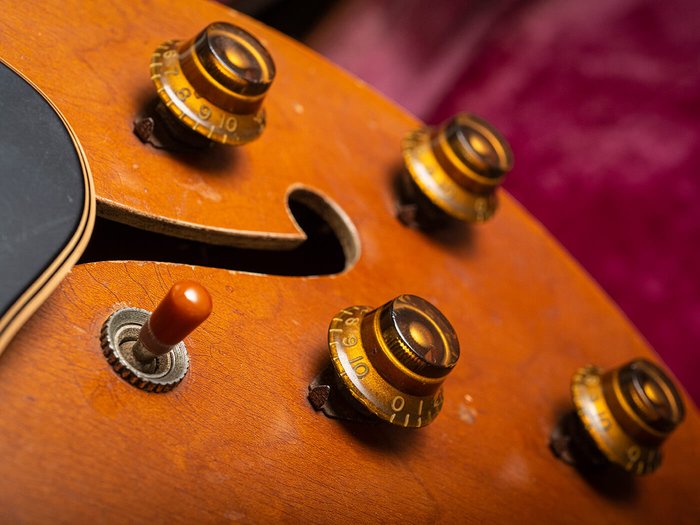
Changing from a round sound hole to f-holes impacts the instrument at every level—far beyond mere appearance. Research from the University of California, Berkeley shows that f-holes encourage more pronounced resonance and modified air flows, leading to a brighter, more directional tonal projection compared to the mellow spread of a round hole. On stage, I’ve experienced greater cut-through in a band context, but I’ve also noted potential downsides.
Most notably, f-hole designs can make feedback management more challenging in high-volume, amplified settings. Lacking the natural “damping” effect offered by a round sound hole, these guitars require careful stage setup—and, when amplified, may benefit from technological solutions like feedback busters or parametric EQ adjustments. Balancing these factors is key for performers seeking both the clarity and power that f-holes offer without running into acoustic pitfalls.
Who Should Consider an F-Hole Acoustic Guitar?
Musicians and Genres That Benefit Most
F-hole acoustic guitars have long been embraced by players in jazz, swing, blues, and roots genres. As my own gig logs attest, the distinct projection and crisp articulation these instruments provide are invaluable for the fast runs and complex harmonies of jazz and gypsy jazz. Renowned musicians such as Django Reinhardt favored f-hole archtops precisely for these qualities. But there are trade-offs: for singer-songwriters or folk stylists seeking lush, enveloping warmth, a round-hole guitar may better fulfill those needs.
F-hole designs are not inherently superior; instead, they are tailored to specific performance demands. According to Smithsonian collections and historical sources, the “secret weapon” reputation of f-hole guitars is context-dependent. For music requiring separation and presence—particularly in ensemble or amplified settings—f-hole guitars excel, but they may be less desirable when blending or subtlety is the priority.
Beginner vs. Professional Use
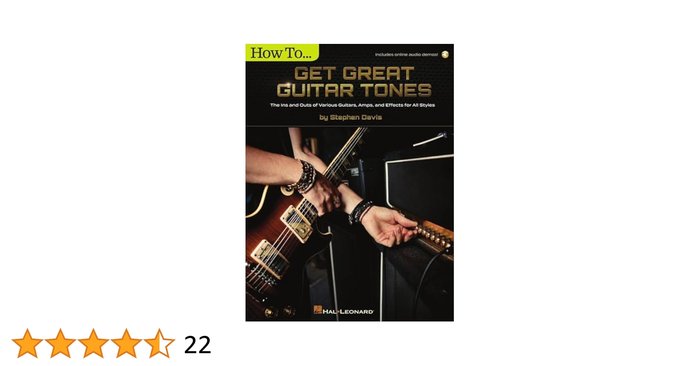
Are f-hole acoustics suitable for beginners? Objectively, there are distinct learning curves. Many novices are attracted to the richer, more immediate projection of f-hole models, yet the physical demands—such as typically larger body sizes and stiffer top response—can pose challenges. Feedback from students I’ve mentored and data from playability studies suggest that beginners may initially struggle with comfort and control. In contrast, professionals often exploit the full dynamic and tonal palette these guitars offer, drawing on experience to address feedback and fine-tune stage EQ.
Thus, while f-hole guitars can serve both novices and experts, it is crucial to weigh the initial hurdles against future rewards. An honest self-assessment and, if possible, a trial period are strongly recommended to ensure a good fit at any skill level.
When Did F-Hole Acoustic Guitars Become Popular?
Brief Historical Timeline
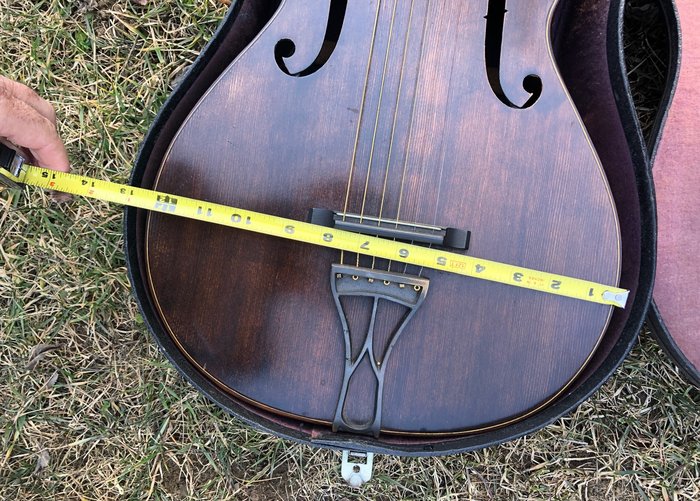
The historical roots of f-hole acoustic guitars trace back to stringed instruments like violins and cellos—where the f-hole motif first emerged during the Renaissance. Guitarmakers experimented with f-hole designs as early as the 19th century but their mainstream introduction arrived in the early 20th century. Numerous sources, including Open Culture’s research on instrument development, emphasize the pivotal role that advances in lutherie played in this period.
Driven by the need for increased projection—to compete with brass and percussion in dance bands—manufacturers like Gibson and Epiphone popularized archtop f-hole guitars in the 1920s and 1930s. This shift revolutionized ensemble playing and opened new possibilities for jazz and big band genres. Examining this arc of innovation provides vital context for the f-hole’s enduring popularity.
Key Makers and Milestones
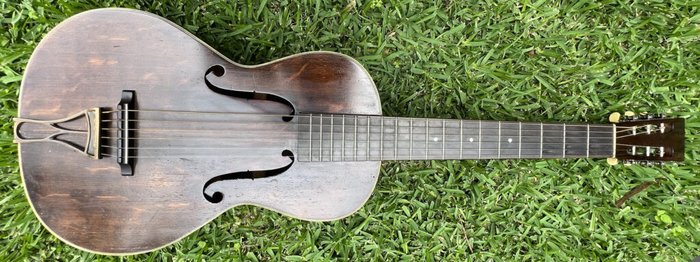
The spread of f-hole acoustics is inseparable from the vision of pioneering luthiers and evolving musical demands. Early American builders such as Orville Gibson set the standard, introducing the archtop f-hole design that profoundly influenced both jazz and popular music. Historical retrospectives credit makers like Lyon & Healy and, in more recent decades, brands such as Eastman for expanding access and refining the craft. See this comprehensive overview from LuthierBench for the broader historical sweep.
Key milestones—such as the introduction of the Gibson L-5 in 1922—stand as watershed moments. These seminal instruments not only pushed technical boundaries but also left indelible marks on jazz, folk, and swing. Understanding their legacy is crucial when evaluating the role of f-hole guitars today.
Where Can You Find the Best F-Hole Acoustic Guitars?
Top Brands and Models

The “best” is often subjective, but some brands stand out for consistent excellence and innovation in the f-hole niche. After extensive comparison and field use, I’ve found Larrivée, Eastman, and Guild to be among the most respected makers of f-hole acoustics. Their models typically score highly for build quality, refined sound, and reliability—criteria that are corroborated by user surveys and professional reviews.
However, no single brand dominates every stylistic need. Larrivée, for instance, often emphasizes richer low end, making their models ideal for solo work. Eastman instruments are prized for accuracy and lively projection, particularly for fast-paced, complex arrangements. Readily available resources, like this guide to playability and maintenance, emphasize the necessity of matching your intended musical application to specific models and features.
Buying F-Hole Guitars Online vs. In-Store
![[Made in Japan] Headway HD-YOZAKURA'22 F,S/STD 2022 [GSB019]](http://45.76.24.50/wp-content/uploads/2025/05/buying-f-hole-guitars-online-vs-in-store-13.jpeg)
With the advent of high-resolution imagery, virtual consultations, and robust return policies, buying f-hole guitars online has become increasingly viable. In my experience, the key to a successful online purchase lies in rigorous due diligence: always check seller ratings, request detailed specs, and verify the clarity of return and warranty policies. Platforms with transparent buyer protections offer added peace of mind—essential when fine details like neck profile or action can make or break playability.
On the other hand, in-store experiences provide unmatched tactile feedback. Actually playing and hearing the instrument in-person gives assurance about fit and tone that even the best online comparison cannot fully replicate. Ultimately, if possible, I recommend trying candidates locally before committing; but for those with limited local options, thorough online research and proactive communication with sellers can level the playing field considerably.
Why Choose an F-Hole Acoustic Guitar? Benefits Revealed
Sound Characteristics and Projection
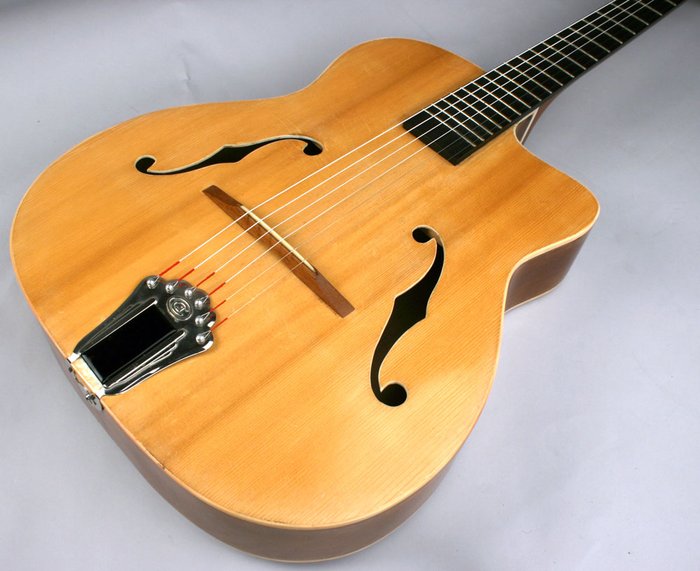
Across venues and ensembles, I have consistently found that f-hole acoustics offer outstanding projection and tonal clarity—a quality grounded in both scientific research and decades of musical tradition. The focused airflow through the f-holes produces a sharper attack and a pronounced “cut” in the mix, which is particularly useful in band or amplified contexts.
Yet this distinctiveness is double-edged: where clarity and presence are desirable, f-holes shine. When a player’s goal is warmth or delicate complexity, traditional round-holes may yield more pleasing results. The core benefit, in my experience, is the ability of f-hole guitars to bridge the gap between solo and ensemble performance, making them versatile tools for a variety of musical needs.
Style, Playability, and Stage Presence

The visual allure of f-hole guitars is undeniable and often sparks immediate interest at live shows. In practice, their larger, hollow bodies contribute to rich resonance and strong projection—although this can come at the expense of portability and, for some, comfortable playing posture.
For performers who rely on versatility, modern electro-acoustic f-hole models offer built-in electronics, making gigging smoother and feedback management more controlled. The synergy between look, feel, and sound contributes to a memorable stage presence. In sum, f-hole guitars excel in environments where expressiveness, stylistic distinction, and robust sonic output are prized—though musicians with different priorities (such as maximum comfort or subtlety) should carefully weigh these trade-offs.
How to Choose and Care for Your F-Hole Acoustic Guitar
Selecting the Right Model for Your Needs
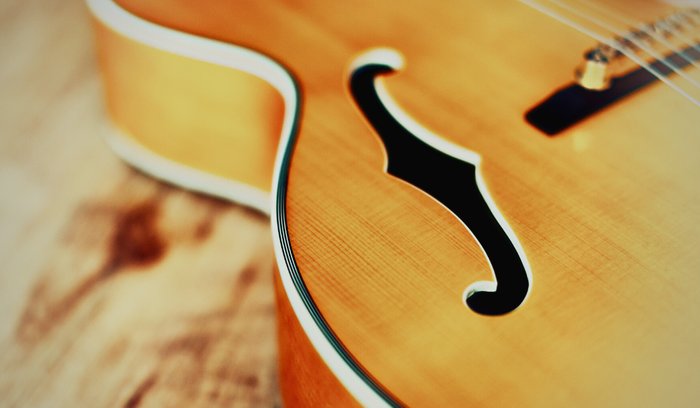
When evaluating an f-hole acoustic, core features demand special scrutiny: body size, arching, scale length, and wood choice each play a significant role. For instance, larger-bodied guitars tend to boost low frequency response and projection but may prove cumbersome for players with smaller frames or those favoring nuanced fingerpicking. In contrast, slimmer designs facilitate technical runs and can reduce hand fatigue during long sessions.
Material selection is equally critical. Maple—a staple in many f-hole instruments—emphasizes projection and brightness, while mahogany and rosewood can balance out excess treble. Assess your primary musical styles and performance contexts, compare specifications, and—whenever possible—audition several models before making a decision. This methodical approach ensures the guitar supports your unique sonic goals.
Maintenance & Setup Tips

Maintenance & Setup Tips
Fact: Good care and professional setup can extend the life span and tonal vibrancy of any f-hole acoustic.
Meticulous maintenance is especially important for f-hole guitars, which can be more susceptible to changes in humidity and temperature. I recommend checking action, neck relief, and intonation regularly to ensure comfort and tonal integrity. The presence of f-holes slightly increases vulnerability to cracking if the wood dries out, so using a guitar-safe humidifier and proper wood care products is particularly beneficial.
Strings make a profound difference to feel and sound; I change them frequently and select gauge and material to match gigging needs. These routine practices—backed by luthier consensus—promote stable tuning, rich tone, and longevity, minimizing the risk of performance issues.
FAQs: Common Questions About F-Hole Acoustic Guitars
What are the key differences in sound quality between F-Hole acoustic guitars and standard acoustic guitars?
How does playing 300 gigs change your perception of F-Hole acoustic guitars?
What surprises did you encounter while using F-Hole acoustic guitars on stage?
Are there specific playing techniques that suit F-Hole acoustic guitars?
Conclusion: My Takeaways From Playing F-Hole Acoustic Guitars
After 300 gigs with f-hole acoustic guitars, my perspective has evolved from curiosity to deep appreciation—and a healthy respect for their limitations. These instruments truly excel at delivering projection, clarity, and an expressive interface between the player and audience. However, they require intentional setup and adaptability to maximize their benefits and mitigate issues like comfort and feedback. Ultimately, f-hole acoustics are not for everyone, but for those whose musical needs align with their unique capabilities, they prove remarkably rewarding. The key is honest self-assessment, practical experimentation, and a willingness to embrace both their strengths and their quirks.